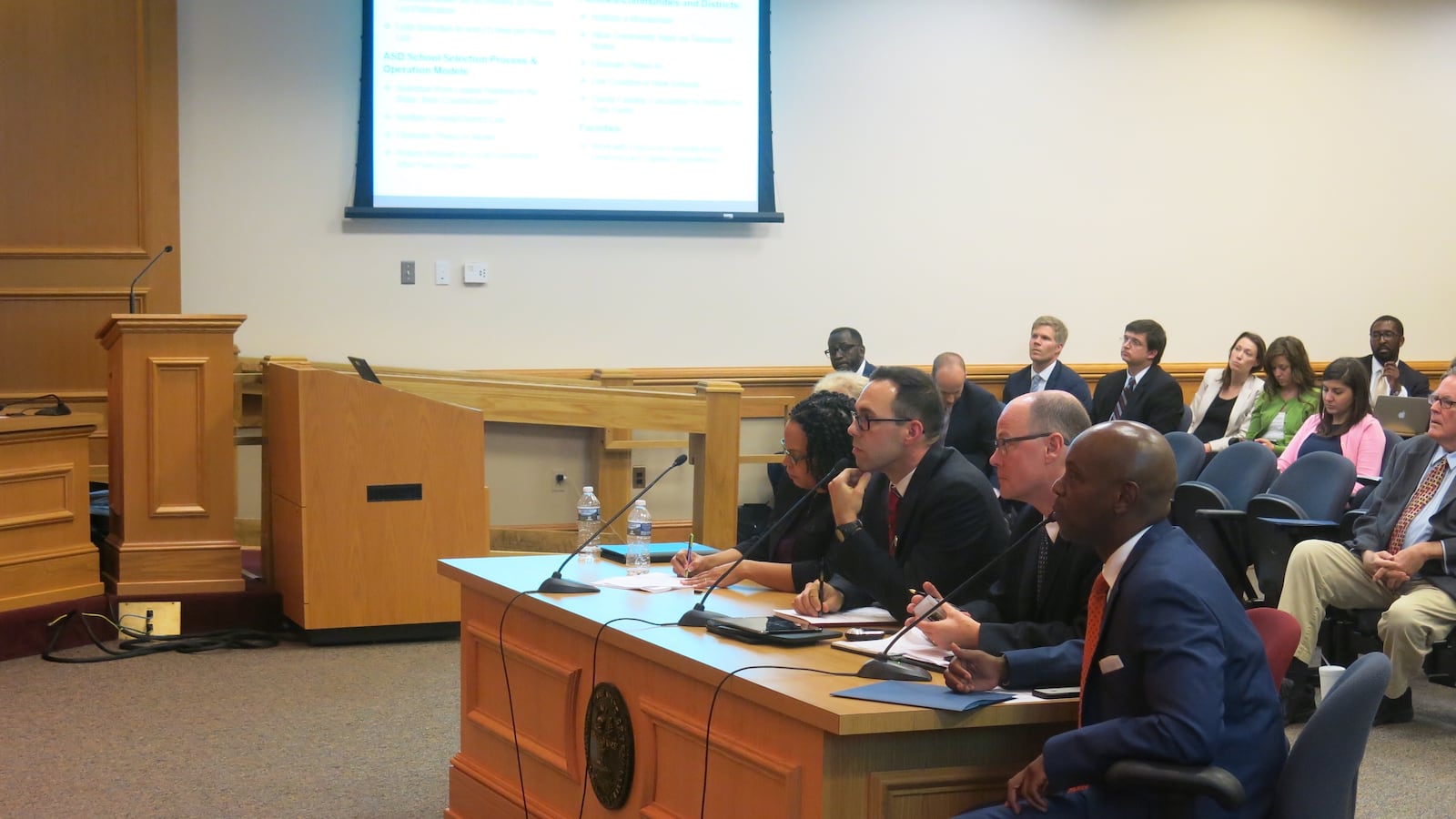Schools taken over by Tennessee’s turnaround district were never meant to remain under state control forever.
So when Achievement School District officials said Wednesday that it could be at least a decade before they allow local districts to run the schools again, officials from the local districts were dismayed.
The 2010 state law that created the ASD to take over low-performing schools and improve them provided some instructions for returning schools to local districts — but the law didn’t specify a specific process, and is hard to understand. What’s clear is that after five years of operation, Shelby County Schools, the district most affected by the initiative, is eager to run its schools again.
“The plan on how schools should come back is opaque, to put it generously,” Brad Leon told state lawmakers during a hearing about the ASD’s future. As Shelby County Schools chief innovation officer, Leon oversees schools in the Innovation Zone, a district-run turnaround effort that has received national attention for its test score gains.
ASD superintendent Malika Anderson told lawmakers that she and state education officials worked all summer to interpret the law and create an exit plan for schools according to it. The plan they generated: Charter schools cannot exit the district until they’ve shown improved results for nine years, and schools that the ASD runs directly can’t exit until they’ve shown improved results for five years.
“We wanted to make sure that it wasn’t just a single year or two and [schools] wouldn’t slide back if they were returned back to local oversight,” Anderson said.
Officials with Shelby County Schools, where 31 long-struggling schools have been assigned to the ASD — taking students and funding with them — are questioning that approach. (The district includes two schools in Nashville and could take over schools in Chattanooga next year.)
It doesn’t make sense that the longer a school under the ASD’s supervision fails to post test score gains, the longer the ASD controls it, Leon said.
“The ASD should be held accountable just like Shelby County Schools is held accountable, and should be relinquishing schools when they are not performing,” he said.
He and other Shelby County officials want legislators to change the law so that the ASD can run schools only for five years, the amount of time that they originally said it would take to propel schools in the bottom 5 percent in the state into the top quarter.
“If you have done the work you needed to do, if you have improved those schools, bravo, you’ve done the work, schools should return to the district,” Leon told lawmakers. “If you haven’t done the work in five years and schools are still underperforming, than you need to be held accountable, too.”
Anderson said she is optimistic that at least some schools in her district are already on the trajectory the district promised. Two ASD charter schools, Brick Church College Prep in Nashville and KIPP University Middle in Memphis, have exited the lowest-scoring 5 percent of schools statewide. Whitney Achievement Elementary, a Memphis school that the district runs directly, is on the bubble.
“I’m really confident that probably about 40 percent of [schools] are well on their way to getting out on the timeline we’ve identified,” Anderson said.
Clarification, Aug. 22, 2016: This version clarifies that schools in the Innovation Zone are not charter schools.

